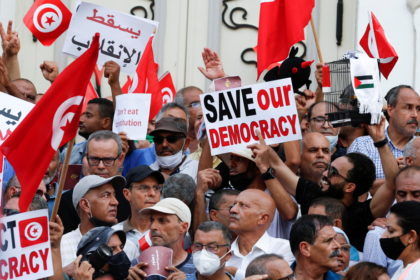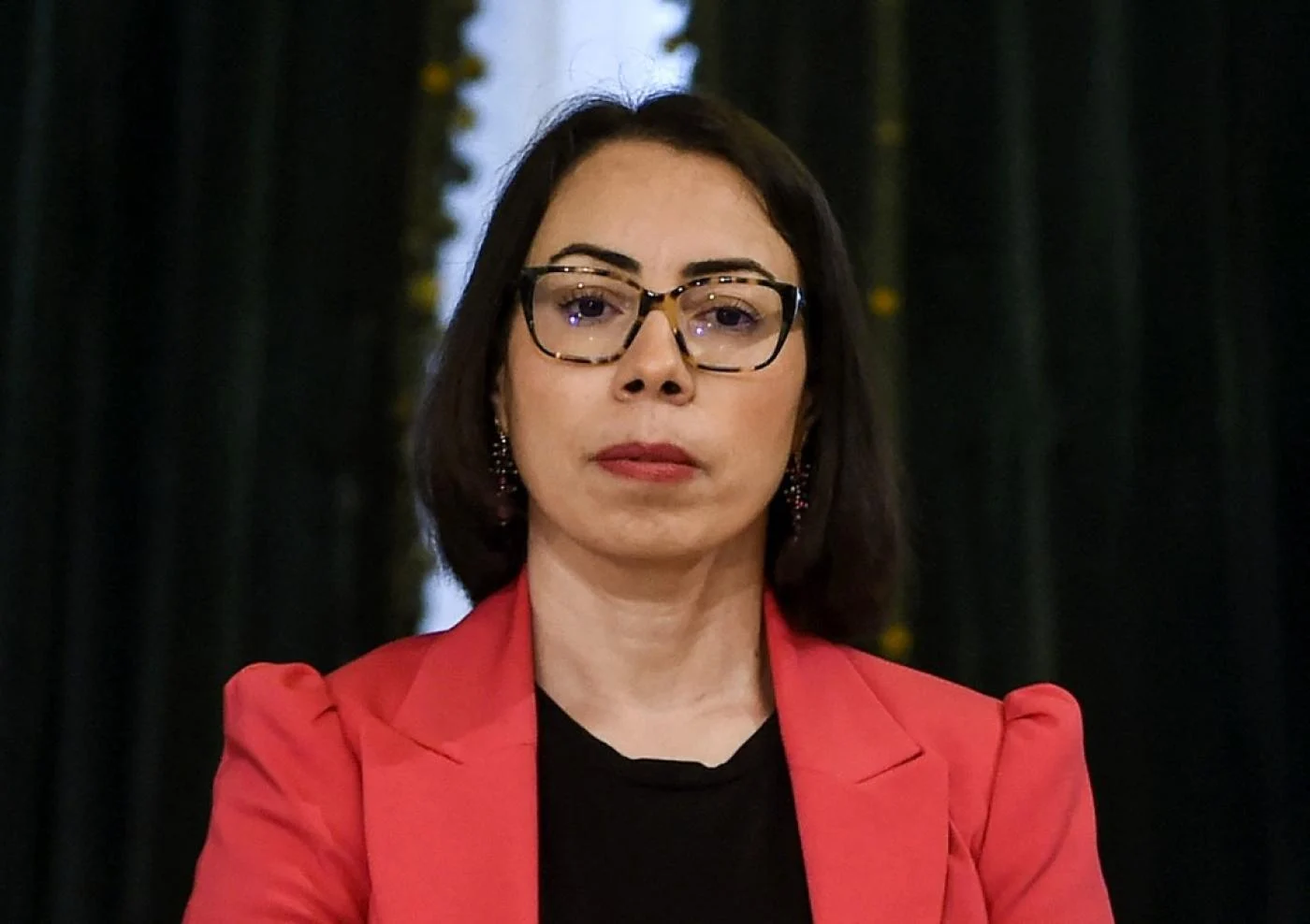Tunisia faces an economic and a political crisis that are unfolding, leaving very short deadlines for the current leadership to come up with solutions that would spare the Tunisian people scenarios of its eastern and western neighbors.
Surrounded by unstable Libya in the east and authoritarian Algerian in the east, Tunisia is navigating uncharted waters as it risks becoming a vassal state of the military-led Algerian regime.
Backpedaling on democracy
Can Tunisians still take pride at the title of the Arab Spring success? This has been called into question since July 25, 2021 when President Kais Saied suspended parliament and consolidated his grip on power.
Last month, Saied organized a referendum on a constitution that further empowers him. Those who voted yes represented 94.6% of all voters, though turnout stands at a mere 30%, an indicator used by the opposition to decry the illegitimacy of the constitutional vote.
Economic hardships
Meanwhile, the president’s quest for an IMF lifeline of $4 billion has been met with backlash from the powerful labor unions, notably UGTT.
The IMF imposed conditions, including subsidies cut and reducing the public payroll, measures that are fiercely opposed by the labor unions and the opposition.
Without a deal with the IMF, Tunisia will find it extremely hard to access funding in the international market. The IMF plays the role of a central bank for other international lenders and serves as a barometer of the sovereign financial health of its borrowers.
With the fiscal deficit foreseen at 9.7% this year, from a previous forecast of 6.7%, Tunisia is in an uphill battle with the legacy of decades of unwise public spending.
Morgan Stanley’s ranked Tunisia, along with Ukraine and El Salvador, in the top three list of likely defaulters.
The country’s dysfunctional finances have also been worsened by the war in Ukraine and the ensuing surge in commodities prices, triggering soaring inflation to 8.2% in June.
The dinar has lost 13.2% of its value in July, compared to a year earlier further complicating the country’s financial health.
The impact has been felt by the most vulnerable groups in the country where the number of poor households grew from 310,000 in 2010 to 960,000 today.
Vassal state
As Tunisia’s financial sovereignty erodes, so does its foreign policy, which is now perceived more than ever as a vassal state of neighboring Algeria.
Tunis is now sidelining on an irrational Algerian military regime serving a hegemonic agenda that has only simmered instability in the region.
Kais Saied was among the three African leaders who attended a military parade showcasing the soviet-era weaponry of the Algerian army on the 60th anniversary of the independence of the country.
Algeria has given 300 million dollars to Tunisia in exchange for its unconditional support in international fora.
In return, Algerian politicians are now condescending calling Tunisia “the little sister” or even worse “an Algerian province” to borrow the words of former PM Houari Tighersi, whose comment triggered the wrath of Tunisian patriots.
Algeria has even meddled in Tunisia’s internal affairs openly and publicly when President Tebboune said in a presser with an Italian peer that he wants to “democratize” Tunisia!
Tunisia’s eroding foreign policy and its alignment on Algeria was manifested in the recent vote on the host of the African Medicine Agency, which was won with a landslide victory by Rwanda.
Tunisia chose its African camp as one of the only 8 countries in Africa that voted for Algeria, including Algiers’ puppet militia and its self-proclaimed SADR republic.



